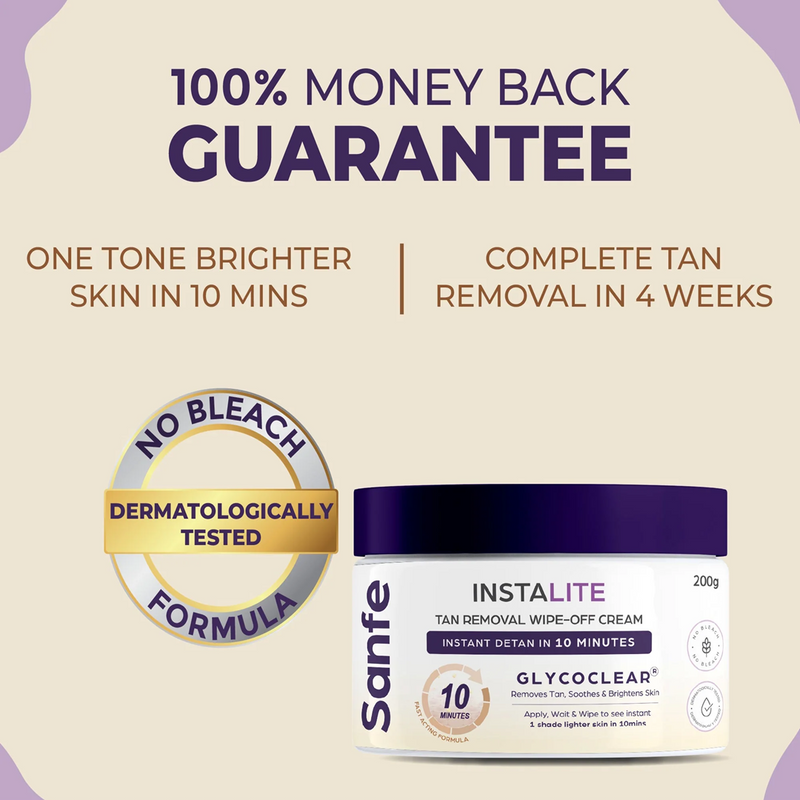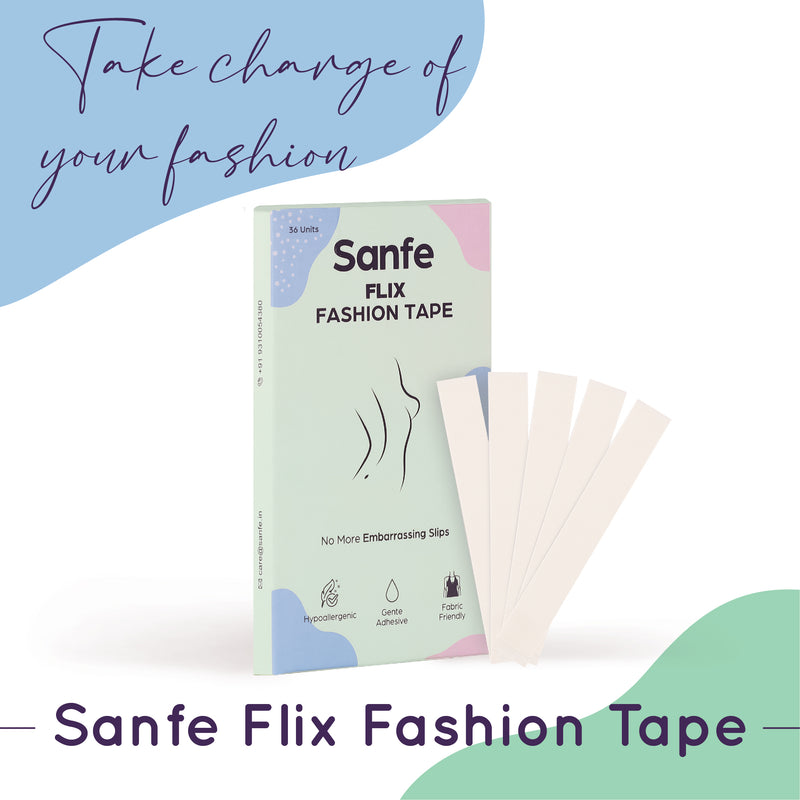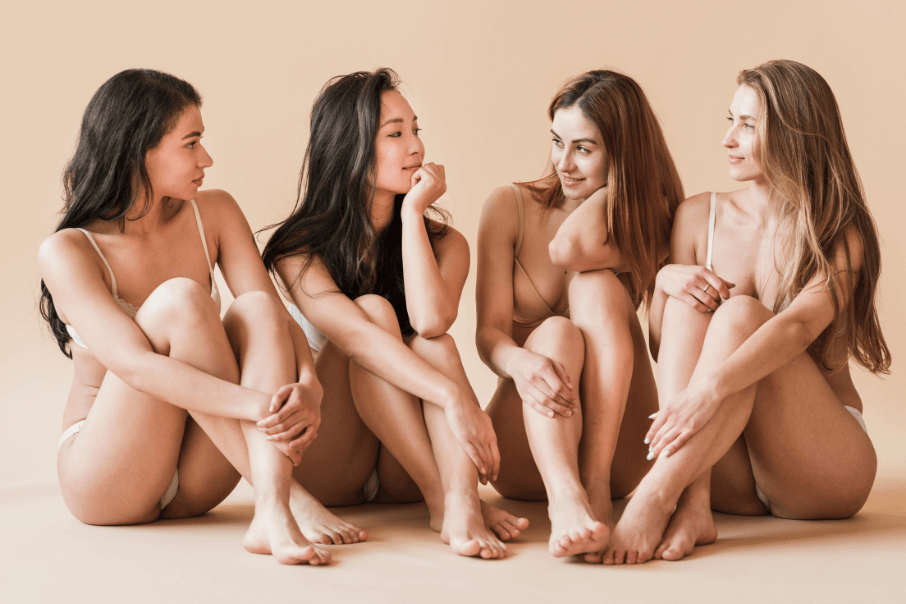One woman might feel empowered by taking off her scarf and leaving the dupatta at home. While some would feel ready to take on the world only after wrapping a scarf around their head. So, what is the scarf doing here - Is it empowering or oppressing?
The difference is of the context.
Power dynamics between genders are highly skewed and varied across different cultures. When a scarf is forced, it is oppressive, and when not, it could be empowering. That piece of fabric is just a tool.
The same goes for our new Intimate Care range, PRIVY MATTERS, which includes Intimate Lightening Serum (super controversial!), Intimate Rejuvenating Gel, and Anti-Chafing & Rash Cream.

We developed this range not only after a lot of research, but also, after talking to thousands of Indian women who confirmed that dark, dry, saggy intimate areas because of tight undergarments, acne scars, hormonal fluctuation during pregnancy, waxing, gym, etc. do affect their confidence. Some of these women also became a part of the product development process and guided us through and through.
Now, that the range is live, we’re bombarded with questions on how we could go against the body positivity movement and capitalise on women’s insecurities. And our response is –
We stand by the Body Positivity Movement.
And so does our entire product range.
Our goal is to create a better world for women, and we strongly feel that if some women believe that lightening the hyperpigmentation in their intimate areas or expediting the collagen production down there could help them feel more at home in their skin, then that’s what we’d do.
Before we move ahead, let’s brush up on the basics.
What exactly do we mean by the term, Body Positivity?
According to Wikipedia, it is a social movement initially created to empower and shed light on marginalized bodies not shown in the media. The movement simultaneously challenges how society presents and views the physical body.
So, lightening serum and rejuvenating gel are definitely against it and should not have been created, because they are not needed. But we did. Why? Because….the scarf example – It’s all about the context.
Mothers, who formed the bulk of our research team, confessed to not feeling like themselves post-partum. It could be depression too. However, most of them had no complaints about motherhood or their kids. They felt that after becoming a mother, the world stops seeing a woman as a woman, a person with desires and ambitions. Please raise a hand if you weren’t surprised to see your mothers in an “unrecognizable element” in her childhood or teenage pictures.
Is it wrong to want to feel the way you were before pregnancy - active and young – after you deliver the child? We don’t think so.
The Dark Side of Body Positivity Movement (BPM)
After 2011, BPM focused on debunking unrealistic standards for beauty – be it skin colour, body shape, weight, body marks, hair, fat, etc. The goal was to assure every woman on this planet that she is beautiful the way she was born. It was about being aware of what your body can do for you and respect her for the same. It was about accepting yourself and not needing any external validation. Undoubtedly, a great initiative!
But, is it possible for BPM to be overwhelming if you’re “forced to feel” a certain way? Remember, the scarf?
From the time a woman is born till the day she exits the world, her body is constantly in flux. Thanks to the gift of childbearing and the anatomical and physiological changes that accompany it. Throughout her life, she’s constantly tussling with how she feels and how she wants to feel. BPM tells her to love herself the way she is, to self-care irrespective of what she likes or dislikes about herself. What if she just can’t seem to love herself? Or what if she is still on the way? What if she loves who she sees in the mirror, but is afraid of the memories an accident scar fetches?
Some women are not pretty or fit by “conventional standards” and are immune to people’s opinion. Body positivity celebrates them. These women unapologetically dive into the plus-size section or get their outfits custom-tailored. No regrets, no complaints. But some of these women also exercise daily to lose a few pounds here and there. Mind you, they are happy in their skin even when they are working out to melt a few inches from the waist. BPM loves this!
Similarly, a woman – pretty by the conventional standards – also accepts herself but likes make-up. Even as conventionally beautiful and dolled up, she supports BPM. Or is she not allowed to?
Sanfe and the Body Positivity Movement
Like said earlier, we wholeheartedly support the movement and its founding principles. However, we also believe that beauty is a social construct and one does not need to be beautiful. You read that right – You do not have to be or feel beautiful. As opposed to what you’ve been conditioned to believe, your value does not lie in the eyes of the beholder. It lies in your eyes and what you think of yourself. You and only you determine your value. And, if you feel, that fading those acne marks and rash lines in your intimate area would make you feel better, then be it.
Oh, but the intimates are covered. Nobody cares how dark or light they are. So, why do we? Because we are creating a better world for all women – those who have accepted themselves with panache, and those who are on their way. Our products are like temporary crutches to be used until the confidence repairs itself.
Now, our question to the movement is – Can one love their body and still want to tweak a few bits?
Is the body positivity movement flexible enough to accept those in transition?
Can BPM accommodate those who are conventionally pretty?
Is there room for choosing to self-care the way you want?
We leave the decision on you.
XO
Sanfe





